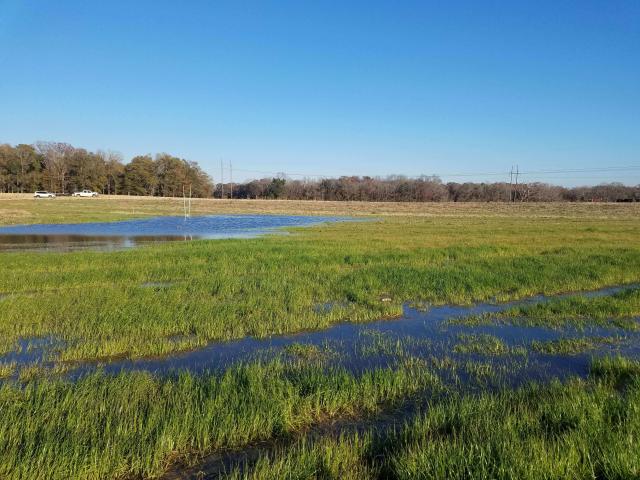Wetlands are one of nature’s most important and productive ecosystems. They provide wildlife habitat, store floodwaters, filter pollutants, capture carbon, and offer recreational opportunities. Since 2016, the Natural Resources Conservation Service (NRCS) has spent $20 million to establish wetland mitigation banks to help restore and protect wetland ecosystems on agricultural land.
To further this effort, NRCS is partnering with Corblu Ecology Group, LLC, an environmental consulting firm in Lawrenceville, Georgia, to develop wetland mitigation banks to help producers replace the lost functions of wetlands that have been drained, dredged or filled. Since 2016, Corblu has received $1,170,701 through NRCS’s Wetland Mitigation Banking Program (WMBP) to develop mitigation banks offering wetland credits, which can be purchased by producers in Georgia.
“It’s been wonderful working with NRCS. They have been great partners in developing this project for Georgia,” said Jennifer Pahl, Corblu Director of Mitigation Markets. “NRCS is very practical in terms of their approach to wetland restoration and they are responsive, which allows us to develop mitigation projects in a timely manner to make credits available for producers who need them.”
The Georgia Agricultural Wetland Bank is an umbrella bank covering the state of Georgia, under which multiple bank sites are developed to provide wetland mitigation credits. The bank currently has two approved sites generating wetland mitigation credits that are sold to producers and plans to expand to a third site in 2021.
“We’d love to implement more projects on the ground and provide credits for folks who need them,” Pahl added. “We are already planning our third site and hope to continue expanding to other areas of the state. The partnership between private industry mitigation banking and NRCS is really valuable, and we look forward to continuing this program in Georgia.”

